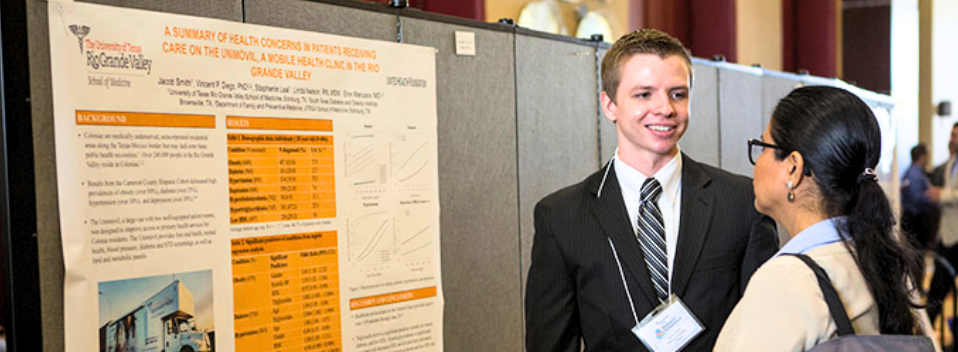MEDI 8127 Scholarly Activities Pre-Clerkship
Document Type
Article
Publication Date
Summer 6-25-2021
Abstract
Intro: Type 2 diabetes (T2D) has become a national epidemic and is a disease that greatly affects the Rio Grande Valley. Many individuals in the United States, especially in the Rio Grande Valley, have a family history of T2D. Previous evidence has shown that those with a family history of T2D are metabolically inflexible, have a decreased ability to clear circulating glucose, and poor postprandial microvascular recruitment in skeletal muscle tissue. The aforementioned occurs in otherwise healthy individuals with a family history of T2D to nearly the same extent as those who have T2D. Previous studies have not shown where postprandial glucose is being disposed in those with a family history of T2D.
Purpose: We set out to determine which organ (liver), or tissue (fat) is the disposal site for glucose in those with a positive family history of T2D.
Methods: Thirty-four healthy Hispanic individuals will be recruited for this study, including 10 participants with a family history of T2D and 24 participants without family history. Hemodynamics, resting energy expenditure, and microvascular recruitment will be assessed at rest and 2 hours (at 30 minute intervals) after consuming either an OGC or MMC. Blood samples are drawn at 15, 30, 60, 90, and 120 minutes post administration of MMC or OGC. The OGC consisted of 50g of glucose solution while the MMC consisted of 30g of protein, 5g of fat, and 35g of carbohydrate.
Recommended Citation
Cavazos, Christopher J., "Cardiometabolic Responses in Individuals with/without Family History of Type 2 Diabetes" (2021). MEDI 8127 Scholarly Activities Pre-Clerkship. 6.
https://scholarworks.utrgv.edu/som8127/6
Academic Level
medical student


